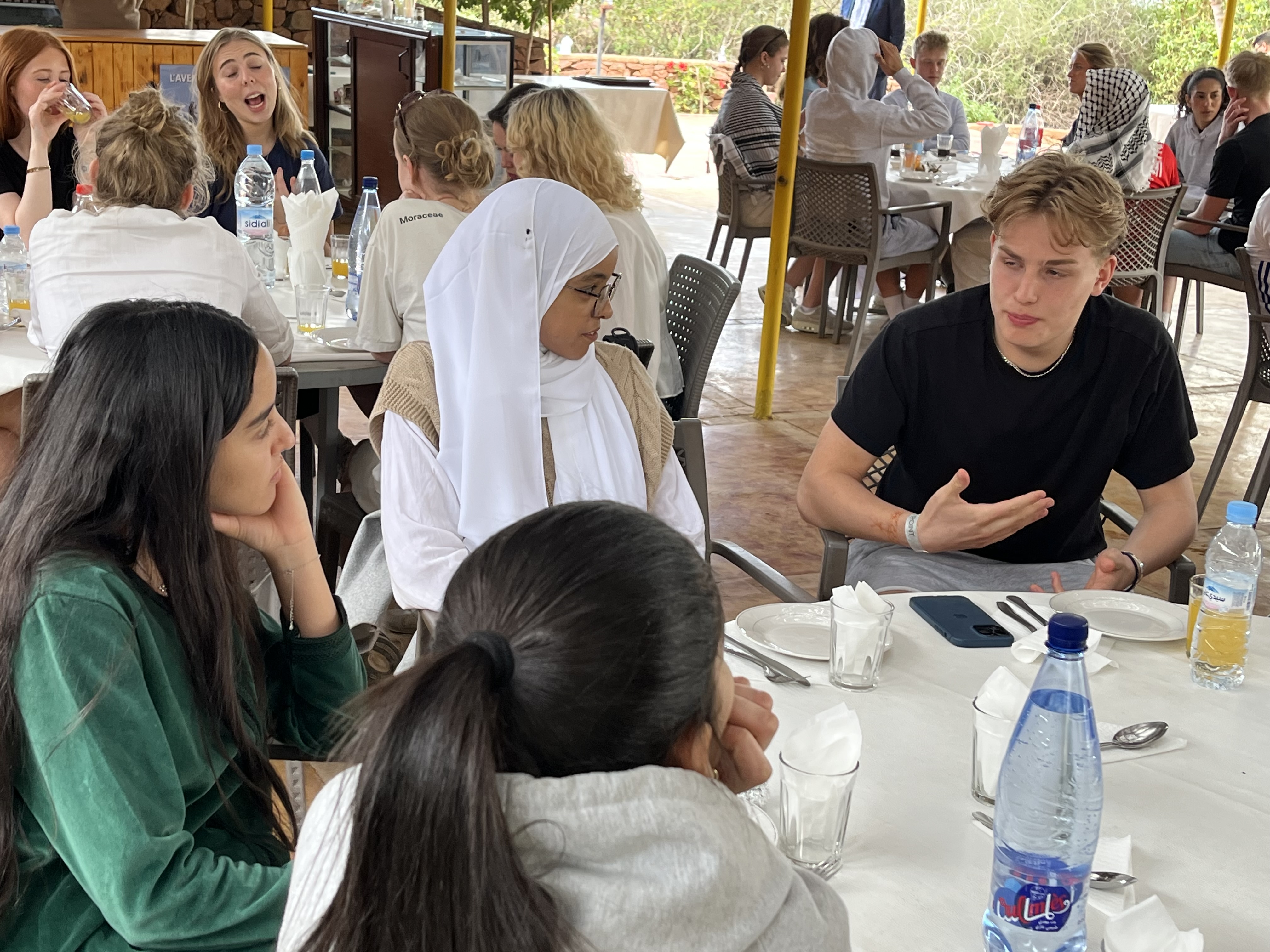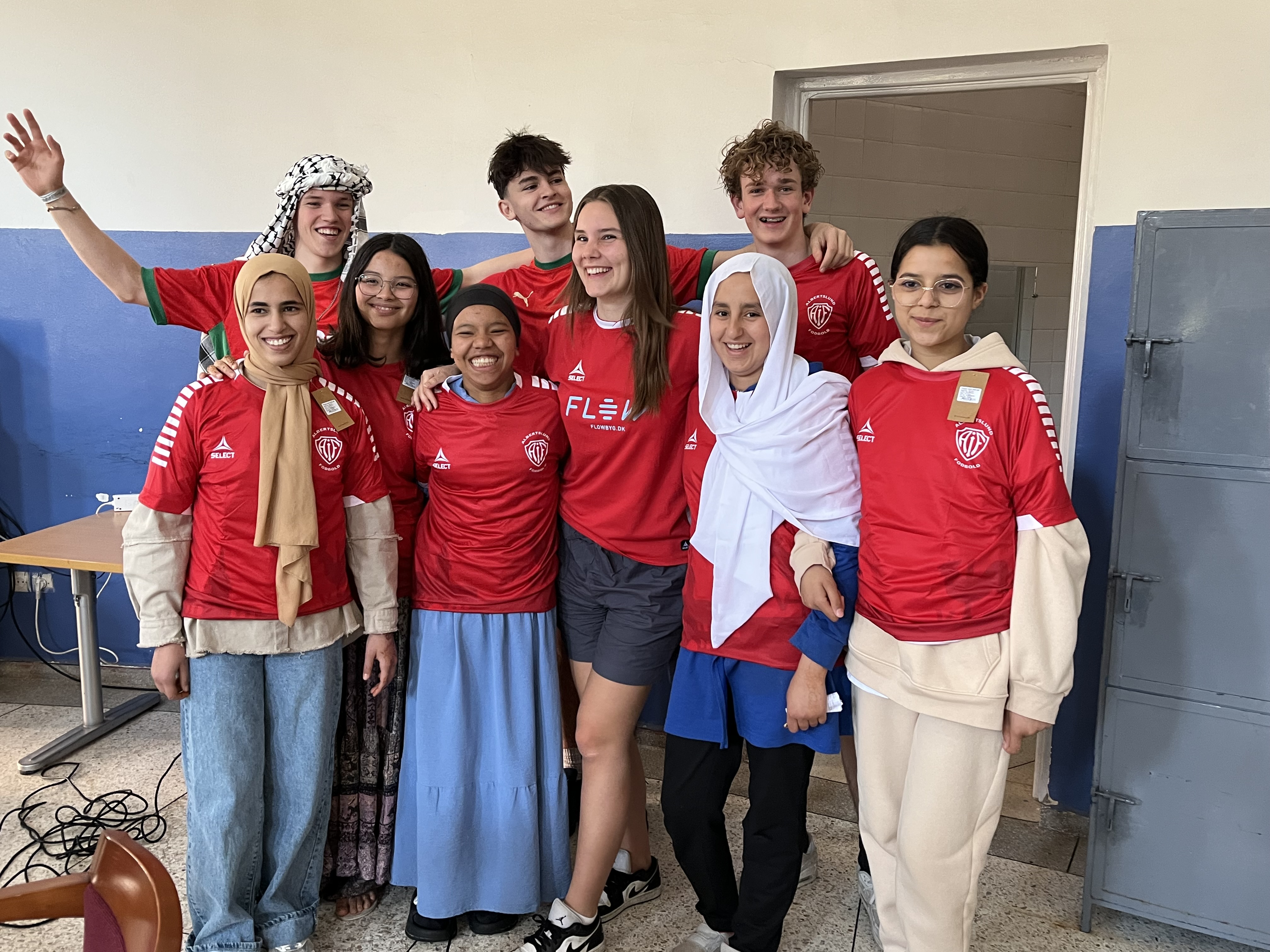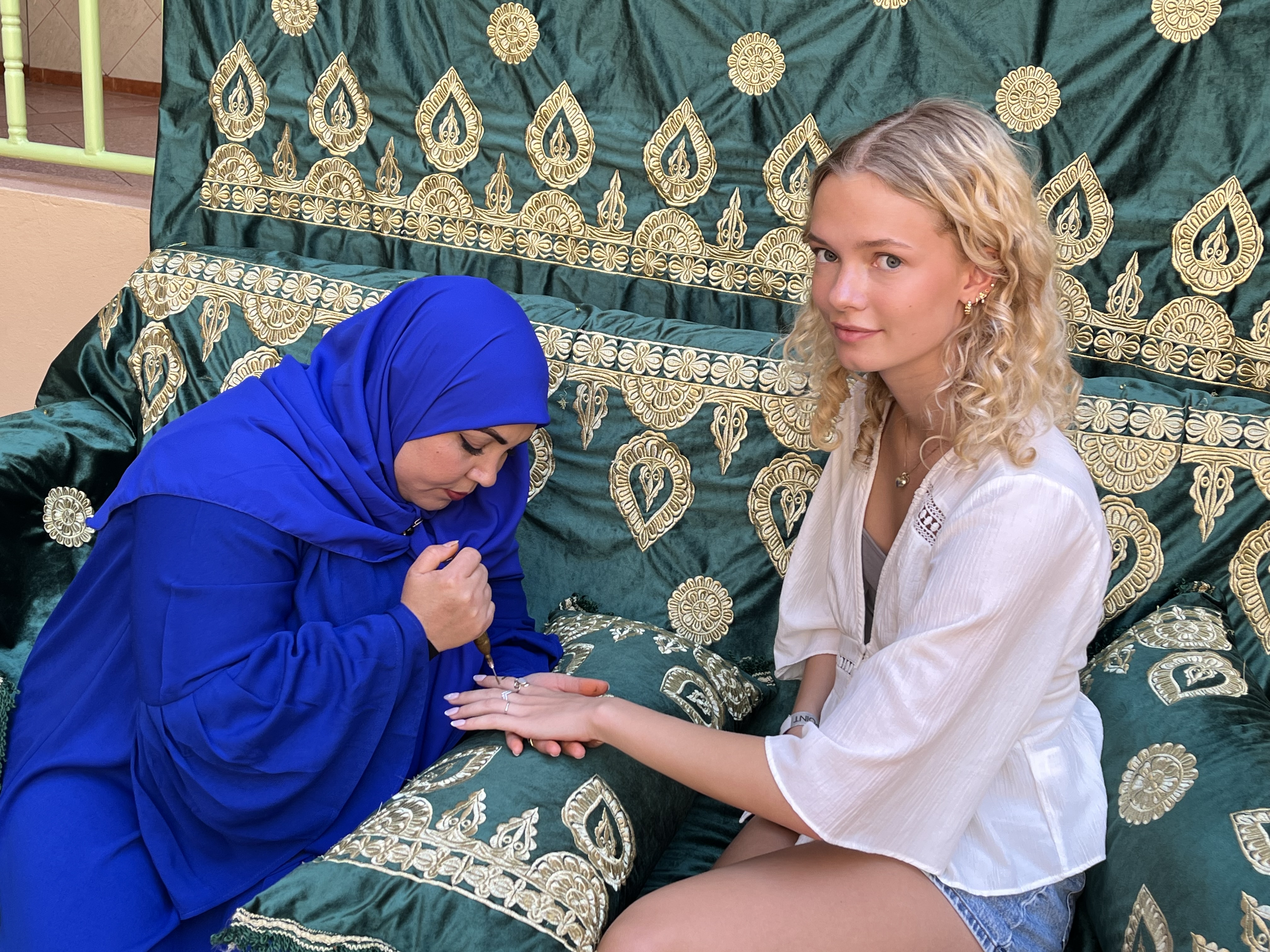Morocco - Democracy Seen Through the Eyes of Youth
What does democracy mean for young people in a society where monarchy and popular rule coexist? In Morocco, where since 2011, following the Arab Spring, there has been increased focus on citizen involvement and rights through reforms, many young people experience democracy not just as a political system – but as a way of life.
The article is a compilation of two articles written by: Anton, Frederik, Katinka, Magnus, and Sophia as well as Niels, Noah, Anton, Helene, and Emilie from 2.k. (Editor Anna Overballe)
In developing the Maroccan democracy the youth plays an increasingly significant role. Marwa describes how her school gave her and her classmates the opportunity to organize an entire day based on their own ideas – without interference from teachers or administration: "We had, even as students, the right to make all decisions and even managed the teachers," she says proudly. Here, one can address the fourth level of Maslow's hierarchy of needs, the need for esteem, and confirm its presence.

In the interview, Marwa mentions that she feels her voice is heard both in her family and in society in general – an important aspect of freedom of expression, which is a crucial foundation in any democracy. But she also acknowledges the role of culture: "Some choices can be received differently by others because of our culture. But fortunately, it is usually in a peaceful manner."

When discussing democracy, it is also important to mention its challenges, including the fact that inequality can easily exist in a democratic society. We experienced exactly this when visiting a private and a public school. Marwa, whom we spoke with, attends a private school where students often have more resources and greater freedom than the average Moroccan student. This is compared to the local girls' school we also visited, where there were fewer resources available, and where students came from quite different backgrounds. The students we spoke with explained that cultural norms and social structures also play a significant role in the lives of young people, especially when it comes to girls.
When we visited a local school, we asked some students what democracy means to them. We received various, mixed answers, which shows that knowledge about political rights in this case varied greatly depending on the level of education and social conditions present. Democracy is experienced differently among young people in Morocco – from strong participation to lack of knowledge – and shows that education plays a central role in democratic awareness.

The trip confronted us with our own blind spots. The contrast between the two school visits highlighted the geographical and socio-economic reality many young people experience – depending on where they grow up. Not everyone lives in an international bubble of ambitions and academic opportunities, like us here at Birkerød Gymnasium. Some were highly versed in democratic thinking and had the opportunity to engage, whereas others did not experience the same privileges. Perhaps that is exactly what study trips should do: open our eyes to nuances, and teach us that the world is never black and white.